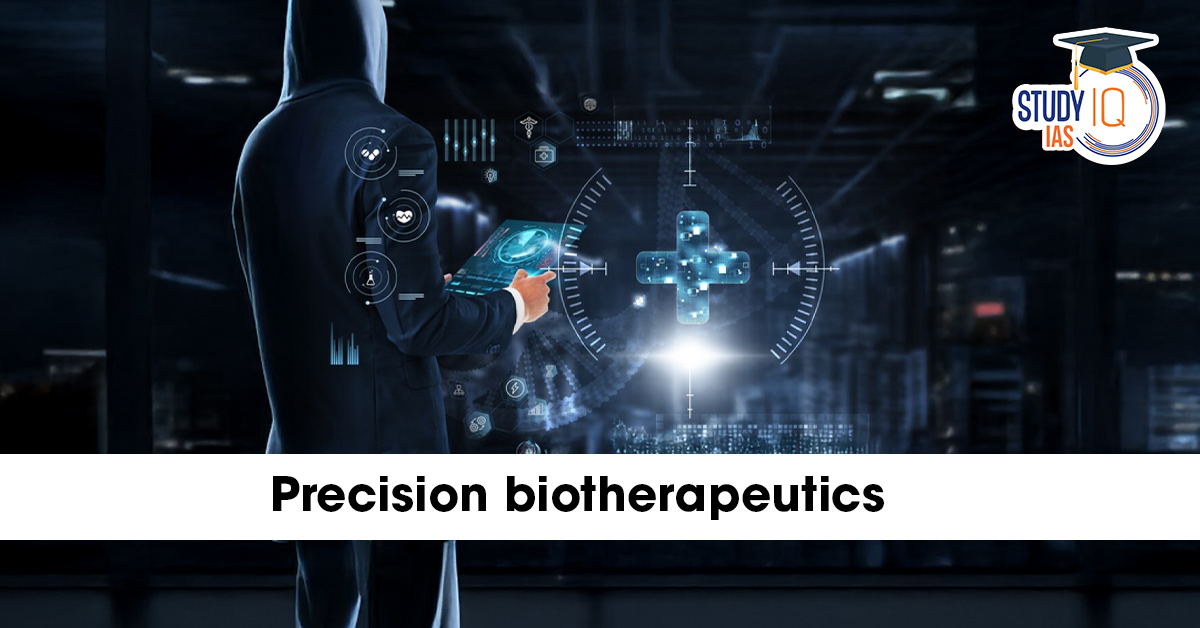Table of Contents
In an era where one-size-fits-all medicine is rapidly becoming obsolete, precision biotherapeutics are emerging as the cornerstone of next-generation healthcare in India. Powered by genomics, CRISPR gene editing, mRNA technology, CAR-T therapy, and artificial intelligence, these therapies treat the root cause of disease rather than just managing symptoms.
For a country with over 1.4 billion people, a high burden of genetic disorders (thalassemia, sickle cell anaemia), rising cancer incidence, and a growing diabetes epidemic, precision biotherapeutics represent both a medical revolution and an economic opportunity.
What Are Precision Biotherapeutics?
Precision biotherapeutics are advanced medical interventions — drugs, biologics, cell therapies, or gene therapies — custom-designed for an individual patient based on their unique genetic, molecular, and cellular profile.
Unlike traditional pharmaceuticals that work for only 30–60% of patients, precision therapies aim for 90%+ efficacy by targeting the exact biological defect driving the disease.
Key Technologies Driving Precision Biotherapeutics
- CRISPR-Cas9 and base/prime editing – Correct faulty genes at the DNA level
- mRNA therapeutics – Instruct cells to produce therapeutic proteins on demand
- CAR-T cell therapy – Engineer a patient’s own immune cells to destroy cancer
- Monoclonal antibodies & bispecifics – Ultra-targeted immune modulators
- AI-driven drug design – Predict patient response and optimise dosing
How Precision Biotherapeutics Work: A 5-Step Process
- Genomic & Molecular Profiling Next-generation sequencing (NGS) and multi-omics identify the exact mutations, biomarkers, or dysfunctional pathways.
- Target Identification Bioinformatics pinpoints the “druggable” defect unique to that patient or tumour.
- Therapy Design & Manufacturing CRISPR, viral vectors, or mRNA platforms create the custom therapeutic in GMP facilities.
- **Personalised Delivery & Dosing AI models determine optimal dose, timing, and delivery method (IV, intrathecal, in vivo, ex vivo).
- Real-Time Adaptation Continuous monitoring refines treatment as the disease evolves (especially critical in cancer).
Top Applications Revolutionising Indian Healthcare
1. Cancer Treatment
India sees ~1.4 million new cancer cases annually. Genomic tumour profiling + CAR-T therapy + personalised monoclonal antibodies are delivering complete remissions in blood cancers and solid tumours previously deemed untreatable.
2. Genetic & Rare Diseases
Over 70 million Indians carry thalassemia traits. CRISPR-based therapies (like Casgevy, already approved globally) and lentiviral gene therapies offer potential one-time cures for thalassemia, sickle cell disease, Duchenne muscular dystrophy, and spinal muscular atrophy (SMA).
3. Cardio-Metabolic Disorders
RNA-silencing drugs (inclisiran, patisiran) and gene-specific therapies are transforming management of familial hypercholesterolemia, transthyretin amyloidosis, and treatment-resistant diabetes.
4. Infectious Diseases & Vaccines
India’s leadership in mRNA vaccine platforms (post-COVID) positions it to rapidly develop strain-specific vaccines for influenza, dengue, and future pandemics.
Major Challenges Facing Precision Biotherapeutics in India
Despite the promise, several bottlenecks remain:
- Regulatory Uncertainty: No dedicated pathway yet for gene, cell, and nucleic-acid therapies under CDSCO
- Prohibitive Costs: First-generation therapies cost ₹2–20 crore per patient
- Limited GMP Biomanufacturing: <10 world-class facilities for viral vectors and cell therapy
- Genomic Data Privacy: Absence of a comprehensive law increases risk of misuse
- Clinical Trial Ecosystem: Only a handful of centres equipped for Phase I gene therapy trials
Way Forward
To make India a global hub for affordable precision biotherapeutics by 2030:
- Create a Dedicated Regulatory Pathway A “Advanced Therapy Medicinal Products” (ATMP) division under CDSCO with fast-track approval for breakthrough therapies.
- Enact Genomic Data Protection Law Similar to Europe’s GDPR, with strict consent and anti-discrimination clauses.
- Build National Biomanufacturing Clusters Public-private hubs in Hyderabad, Bengaluru, Pune, and Ahmedabad focusing on viral vectors, mRNA-LNPs, and allogeneic cell lines.
- Include Under Ayushman Bharat–PMJAY Cover CAR-T, CRISPR therapies for thalassemia/SMA, and next-gen rare disease drugs to improve equity.
- Establish National Bioethics Commission Independent oversight on germline editing, equitable access, and long-term safety.
Conclusion
Precision biotherapeutics are no longer science fiction — they are here, and India has the scientific talent, patient population, and cost advantage to lead globally.
With the right regulatory framework, ethical safeguards, and strategic investment, India can achieve what few nations have: democratising cutting-edge gene and cell therapies for the masses while building a $100-billion+ biotech export industry.
The question is no longer whether precision biotherapeutics will transform healthcare in India — but how quickly we act to make them accessible and affordable for every citizen.


 New Rules for IPS Officers: Modified Nor...
New Rules for IPS Officers: Modified Nor...
 Menstrual Health in Schools: Why It Is I...
Menstrual Health in Schools: Why It Is I...
 Green Steel in India: How It Can Help Ac...
Green Steel in India: How It Can Help Ac...

























